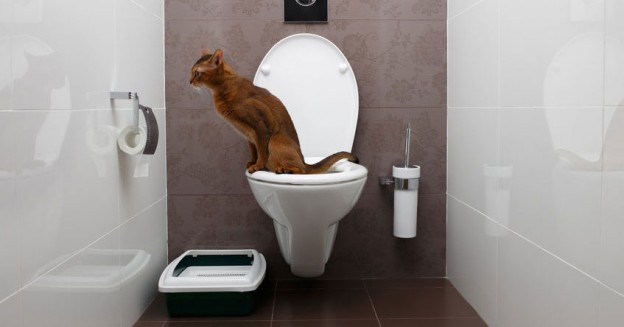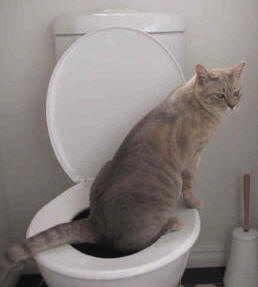Learning the Risks of Flushing Animal Waste Down the Toilet
Learning the Risks of Flushing Animal Waste Down the Toilet
Blog Article
They are making a few good pointers regarding Should you flush animal waste down the toilet overall in the article following next.

When it comes to getting rid of waste, especially animal waste, many individuals commonly consider the practical choice of flushing it down the toilet. However, this apparently very easy service can have severe effects for the setting and public health. In this short article, we'll discover why flushing animal waste down the bathroom is a poor concept and provide different methods for appropriate disposal.
Introduction
Appropriate waste disposal is vital for maintaining ecological sustainability and public health. While it might appear safe to purge animal waste down the bathroom, it can result in different problems, both for the setting and human health.
Threats of flushing pet waste
Environmental influence
Purging pet waste introduces hazardous germs and virus into waterways, which can adversely impact water ecosystems. These microorganisms can contaminate water sources and injury marine life, interrupting delicate ecosystems.
Public health worries
Animal waste includes damaging microorganisms such as E. coli and Salmonella, which can present major health dangers to human beings. Purging animal waste down the commode can contaminate water materials, resulting in the spread of conditions and infections.
Alternatives to flushing
Rather than purging pet waste down the commode, there are a number of different disposal techniques that are much more environmentally friendly and hygienic.
Composting
Composting pet waste is a green means to deal with it. By composting, raw material is broken down right into nutrient-rich soil, which can be utilized to feed gardens and plants.
Landfill disposal
Getting rid of animal waste in a read more garbage dump is an additional alternative. While not as environmentally friendly as composting, it is a safer choice to flushing, as it protects against the contamination of water sources.
Pet garbage disposal systems
There are specialized animal garbage disposal systems offered that securely and hygienically throw away animal waste. These systems usually use enzymes to break down waste and get rid of smells.
Actions to proper pet garbage disposal
To make sure proper disposal of animal waste, follow these steps:
Scooping and landing waste
Routinely scoop and bag animal waste utilizing naturally degradable bags. This protects against waste from infecting the setting.
Making use of marked waste containers
Dispose of bagged pet waste in marked waste bins, such as compost bins or land fill bins. Prevent flushing it down the toilet whatsoever costs.
Cleaning litter boxes and pet areas on a regular basis
On a regular basis tidy can and animal locations to prevent the build-up of waste and microorganisms. Use pet-safe cleaning products to preserve hygiene.
Advantages of appropriate disposal methods
Embracing appropriate disposal techniques for pet waste uses a number of advantages:
Decreased environmental pollution
Proper disposal techniques lower the danger of environmental pollution, shielding waterways and environments from contamination
Minimized risk of water contamination.
By avoiding flushing animal waste down the bathroom, the threat of water contamination is substantially minimized, protecting public health.
Enhanced cleanliness and health
Appropriate disposal methods advertise better hygiene and hygiene, creating a more secure atmosphere for both humans and animals.
Conclusion
To conclude, purging animal waste down the bathroom is damaging to the setting and public health. By adopting alternative disposal approaches and adhering to proper waste management techniques, we can decrease the unfavorable influence of pet waste and contribute to a cleaner, much healthier earth.
What To Do With Dog Poo – The Do's And Don'ts Of Disposing Of Faeces
Dog poo bins
Some councils provide dedicated dog waste bins in popular dog-walking areas that can take dog poo that has been bagged but you can legally dispose of dog waste in any public litter bin, as long as it is securely bagged. This also applies to your wheelie bin at home.
Do not flush
Water companies do not recommend flushing dog faeces down the toilet because certain parasites can survive the water processing treatment and are potentially harmful to humans. You should also never consider flushing dog poo that has been bagged down the toilet as the bags will not break down and instead create severe blockages in the sewage system.
In the woods
The Forestry Commission promotes a ‘stick and flick’ method for dealing with waste in the woods. This means finding a stick and using it to flick any poo from off the path so that it is out of the way of other walkers. You could also bury it as long as it is not in an area where there might be livestock.
Livestock
Parasites found in dog poo can be transmitted to livestock if they inadvertently eat infected faeces that has been left on grazing land. This could result in the death of sheep or abortion in cattle so you should always make sure you pick up your dog’s waste in fields where livestock could be present.

On a regular basis tidy can and animal locations to prevent the build-up of waste and microorganisms. Use pet-safe cleaning products to preserve hygiene.
Advantages of appropriate disposal methods
Embracing appropriate disposal techniques for pet waste uses a number of advantages:
Decreased environmental pollution
Proper disposal techniques lower the danger of environmental pollution, shielding waterways and environments from contamination
Minimized risk of water contamination.
By avoiding flushing animal waste down the bathroom, the threat of water contamination is substantially minimized, protecting public health.
Enhanced cleanliness and health
Appropriate disposal methods advertise better hygiene and hygiene, creating a more secure atmosphere for both humans and animals.
Conclusion
To conclude, purging animal waste down the bathroom is damaging to the setting and public health. By adopting alternative disposal approaches and adhering to proper waste management techniques, we can decrease the unfavorable influence of pet waste and contribute to a cleaner, much healthier earth.
What To Do With Dog Poo – The Do's And Don'ts Of Disposing Of Faeces
Dog poo bins
Some councils provide dedicated dog waste bins in popular dog-walking areas that can take dog poo that has been bagged but you can legally dispose of dog waste in any public litter bin, as long as it is securely bagged. This also applies to your wheelie bin at home.
Do not flush
Water companies do not recommend flushing dog faeces down the toilet because certain parasites can survive the water processing treatment and are potentially harmful to humans. You should also never consider flushing dog poo that has been bagged down the toilet as the bags will not break down and instead create severe blockages in the sewage system.
In the woods
The Forestry Commission promotes a ‘stick and flick’ method for dealing with waste in the woods. This means finding a stick and using it to flick any poo from off the path so that it is out of the way of other walkers. You could also bury it as long as it is not in an area where there might be livestock.
Livestock
Parasites found in dog poo can be transmitted to livestock if they inadvertently eat infected faeces that has been left on grazing land. This could result in the death of sheep or abortion in cattle so you should always make sure you pick up your dog’s waste in fields where livestock could be present.

I came across that content about Don't Flush Your Pets Poo Down The Loo, Vet Warns while surfing around the internet. Appreciated our review? Please share it. Help others check it out. Thanks a lot for your time. Don't hesitate to pay a visit to our site back soon.
Click Here Report this page